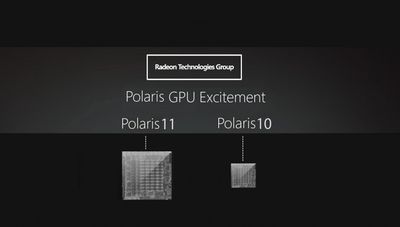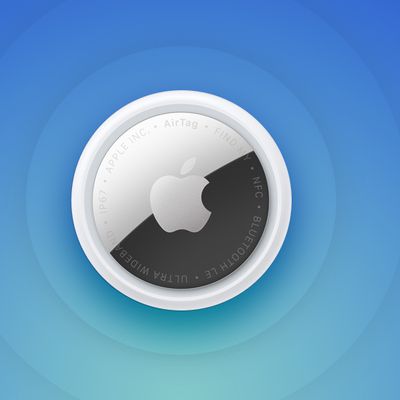Following up on its rumor of a major AMD design win reported last October, WCCFtech has confirmed via multiple sources that the customer in question is indeed Apple. The latest design win follows Apple's use of AMD 200/300 series GPUs in the top-end 27-inch Retina iMac and 15-inch Retina MacBook Pro, and is a boon for the chipmaker that has seen its share of the graphics market dwindle over the past several years.
The design wins make mention of two graphics processor families, Polaris 10 and Polaris 11. The former carries a code name "Ellesmere" and is believed to be in the power range that would make it suitable for an upgrade to the iMac. Polaris 11 has the code name "Baffin" and it is believed to be in the power range suitable for an upgrade to the Retina MacBook Pro.

While Apple has limited discrete graphics chips to the top of its MacBook Pro and iMac lines, there would be suitable chips for all but the smallest form factors of Apple notebooks, should the company choose to embrace discrete graphics on a broader array of models.
As we previously noted, the switch to the new Polaris line of GPUs is set to be a significant performance upgrade over the previous 28nm GPUs. Announced by AMD at Computex, the lower-power AMD GPUs are set to be built on Global Foundries' 14nm process. Through an agreement between multiple foundries, the process is equivalent to Samsung's own second-generation 14nm FinFET process, which is the successor of the process used for the A9 and A9X featured in the latest iPhones and iPads.

Performance of these new graphics chips from AMD is expected to be double that of their predecessors, measured on a per-watt basis. This is thanks to the large size reduction and performance gains in going from the 28nm node first seen in 2011 for graphics processors to the new 16/14nm FinFET processes. This would certainly be welcome to the Mac lineup due to the increased graphics demands of the high-resolution Retina screens featured in both the iMac and MacBook Pro computers. It is reasonable to expect that Apple would allocate roughly the same power budget as on current models, meaning the 2x performance could be seen by users in some cases.
According to earlier reports, the chips should be ready to ship in consumer products in time for the back-to-school shopping season. It is not unheard of for Apple to receive priority on new chip designs, though WWDC would be the most logical time to expect these new Macs to debut. The future of the Mac Pro is less certain, though there will certainly be suitable high-end chips from AMD manufactured on TSMC's 16nm process this year.




















